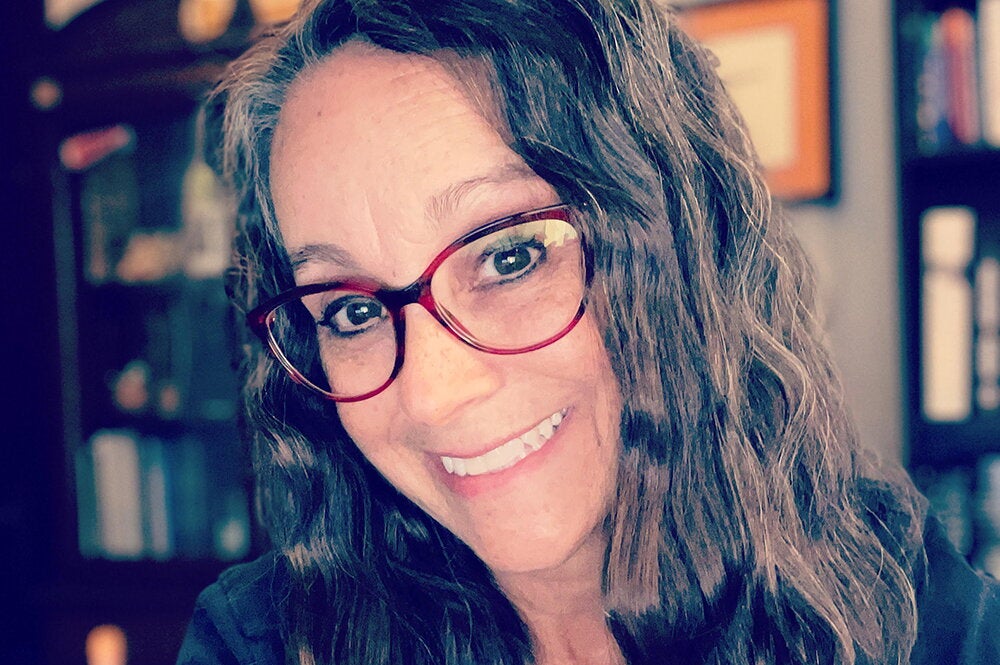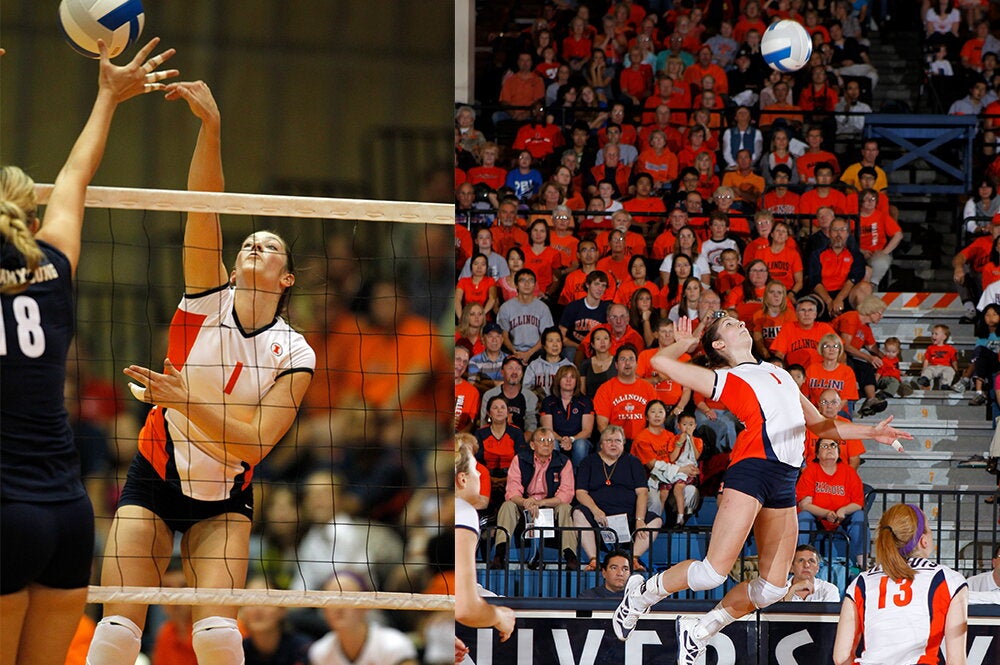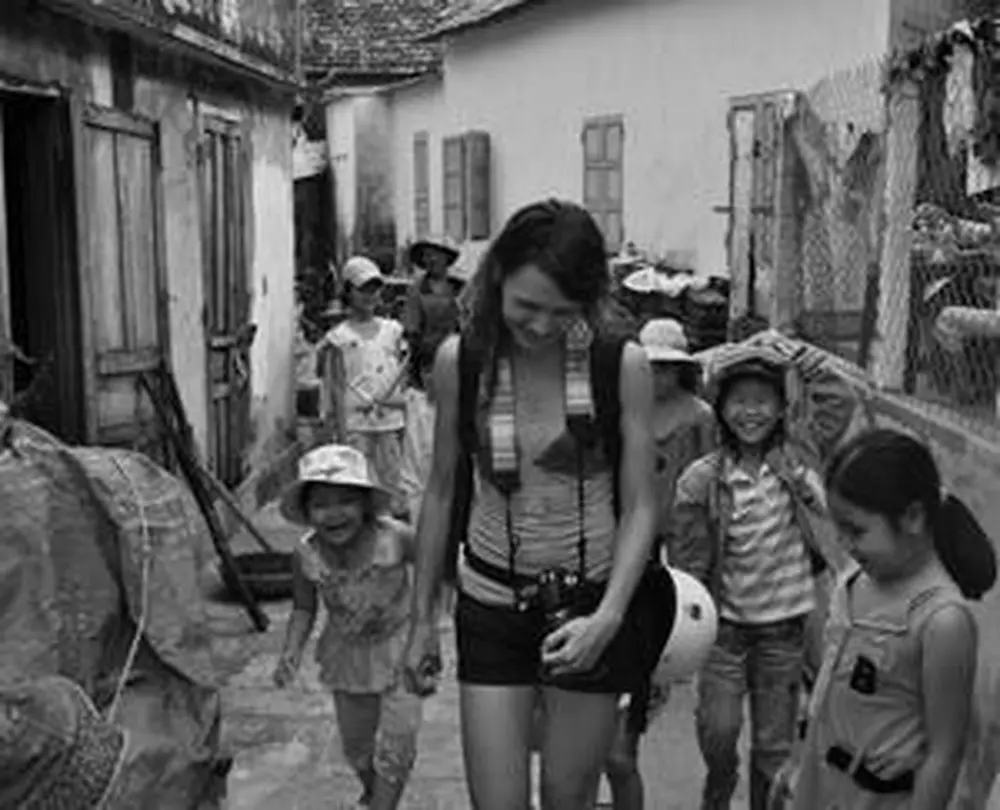
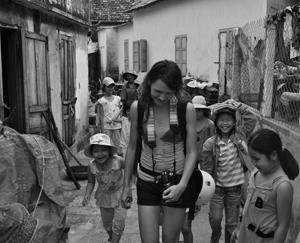
Taking a 60 percent pay cut to move 14,000 miles to a place where lizards crawl into your refrigerator doesn’t exactly sound like a big break. And eight months after arriving in Vietnam, Emma Swift will admit that her new job has required some, well, cultural adjustment.
Yet for someone developing a career in higher education administration, few places are as interesting as Vietnam, as the country overhauls and expands its university system. So when Swift had the opportunity, she left her job as an assistant director at the University of Illinois and boarded the plane for Indochina.
Not long after she was drinking snake wine.
Swift, 26, (AB ’07, international studies and Spanish) teaches and coordinates programs at Quy Nhon University in south-central Vietnam as part of a one-year Fulbright English Teaching Assistantship Grant. The funding is non-extendable, meaning that in July she’ll be leaving the place that, with all its eccentricities, has provided valuable perspective and grown close to her heart.
“[The students] pile in for office hours now, my evening events are a hit, and students are volunteering in class right and left—something that is fairly unusual in the Vietnamese teacher/learner relationship,” says Swift, who also earned a master’s in education organization and leadership in 2010 from Illinois.
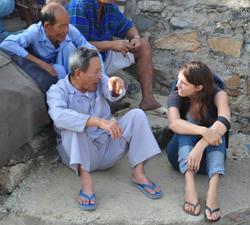
“I am seeing growth,” she adds. “It is great.”
Quy Nhon University specializes in training K-12 teachers. Most of Swift’s students, now freshmen, plan to teach English. She has 77 women in her classes and just five men as traditional gender roles are “slightly more extreme” in Vietnam, Swift says.
She lives in a 10-by-10-foot room on campus and knows enough Vietnamese to get around—no small feat with a language that consists of six tones. The town of Quy Nhon has about 250,000 people and a foreign population of about “15 or so,” Swift jokes.
Full immersion in Vietnamese culture comes with not a few adjustments, including the lunar calendar, sporadic Internet access, suffocating heat, and traffic laws that depend on the size of your vehicle. She’s seen entire families ride on a single motorbike. Notions of privacy are different, too, as most days she’s asked by near-strangers about her age, weight, and when she’s going to have babies.
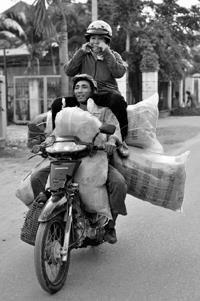
And with westerners a rarity in Quy Nhon, Swift receives an inordinate amount of attention while she’s out and about, with much of it from men. One day she was nearly clipped by a truck as first the passenger and then the driver leaned out of the passenger window to give her the thumbs up.
She’s kept a blog during her journey that sometimes serves as a venting point: “Eighty percent of the time, I am head over heels for this country, its absurdity, its natural beauty, and particularly its students. And then 20 percent of the time I am not,” she commented after the truck incident.
At the same time, Swift says Vietnam is an easy place to live. If her bike tire is flat there is always someone nearby to fill it up within the next minute. Going to the doctor doesn’t require an appointment. It should also be noted that as an American she endures no lingering hostility over the Vietnam War. Relics and memories of the war remain, but the people seem at peace with the past, she says.
“Bear in mind that the Vietnamese have lived in Vietnam in all of those years since the war,” she says. “It is a monumental part of their history, but they have since formed new histories, new stories, new loves and failures, and made new sacrifices.”

Swift, who plans to return to the U.S. to earn a doctoral degree in higher education administration, has developed an affection and interest in her students that seems mutual. She split her classes into four sections to give them more individual attention even though it doubled her teaching load. For her birthday her students showered her with cards, poems, charms, and art.
Recently she took a photo of her class. In it, the women lean in close and put their arms around each other in characteristic Vietnamese fashion even as they work on an assignment. Swift notes how different it is to how she interacted with her own classmates in college.
“There is something to the closeness that this small cohort has,” she concludes. “Arms around each other while writing a story about aliens. It is just so gentle and loving.”

